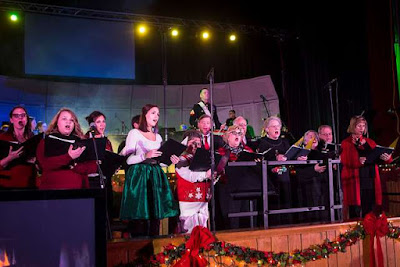It’s the final rehearsal on the day of your big concert. You realise that several important singers are missing.

What can you do? Here are a few ideas.
I have a concert coming up soon for the first time in over two years. I’ve restricted numbers for this project due to Covid, so we have far fewer singers than usual.
Having a relatively small ensemble means we are vulnerable if anybody drops out at the last minute. Two people are absent already due to testing positive for Covid. Who knows how many more will drop out by the time of the concert?
This set me thinking: what can you do (if anything) at the last minute if important singers don’t turn up for your concert?
They could be soloists, section leaders, or even a whole harmony part missing if you have a very small group.
who is an ‘important’ singer?
Before I go through some possible strategies, I’d like to consider what makes a singer ‘important’.
Obviously a soloist has a very important role. As do the two men who make up your bass section. But there is another kind of ‘important’ singer who has that label imposed on them by the other singers in their section.
These ‘important’ singers are the ones who seem to know their part well, are confident singers, and who others in their part come to rely on.
I’ve written before why this is not a good situation. See 6 ways to stop the strain of other singers relying on you (or you relying on them).
The main danger of relying on another singer in your section (apart from when they don’t turn up!), is that you can end up not learning your part well enough and not taking responsibility for your own singing.
dealing with important missing singers
Here are a few strategies you can try if important singers don’t turn up for your performance.
- ensure your singers are self-reliant – move singers around in rehearsals, try putting singers into trios or quartets when rehearsing a song, do anything you can to stop singers becoming dependent on individual singers in their part (see above).
- have contingency plans in place – for example, have back-up singers for any solo spots. Try not to create a concert programme that needs 100% attendance by all singers. Build in some flexibility.
- tweak song arrangements – if most of a section is missing (especially in a small group), consider ditching a part entirely. If there are solos, can you lose them without damaging the song too much?
- move singers around – depending on the complexity of the song and the experience of your singers, you might be able to ask some singers to swap parts temporarily, even if just for one song.
- change your running order – you might need to drop a song entirely. Perhaps you have a well-known oldie that you can put in its place.
- stop worrying about things you can’t control – instead of focusing on the singers who are missing, work with the singers you have and use that as a positive. Always expect the unexpected!
I’d love to know if you’ve been in this situation and how you’ve dealt with it. Do drop by and leave a comment.
further reading
You might find these other posts useful.
How will your choir cope if you don’t turn up?
Planning ahead: leave space for the unexpected
Plans are worthless, but planning is everything
Best laid plans – dealing with the unexpected in singing sessions
Chris Rowbury
Get more posts like this delivered straight to your inbox!
Click to subscribe by email.
… found this helpful?
I provide this content free of charge, because I like to be helpful. If you have found it useful, you may like to ...
... to say thank you.
